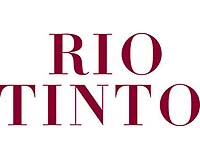| . |  |
. |
Taipei, Taiwan (UPI) Jul 2, 2009 Communist China, ever since its founding in 1949, has never given up its sovereign claim on Taiwan, but the island nation's new president has sought to put relations between the two countries on a more even keel since taking office in May 2008. The impact of Taiwanese President Ma Ying-jeou's policy was evident again Tuesday when his nation began accepting investments from the mainland in manufacturing, service and infrastructure sectors. China's official Xinhua news agency said the move marked a historic breakthrough of decades-long hope for two-way investments across the Taiwan Strait. The report said under new regulations, mainland individuals, companies and institutions can set up branch offices, wholly owned or joint-venture companies in Taiwan after getting approval from Taiwan economic affairs authority. Initially, Taiwan would allow mainland investments in 64 categories in manufacturing, 25 categories in the service and 11 categories in infrastructure sectors, the report said. Taiwanese media said investments in the manufacturing sector would include textiles, rubber and plastic products, some home electronic products, and farm and mining machines. The service sector would include distribution of non-sensitive industrial, medical and farm products. Infrastructure projects would include ground facilities at air and sea ports, and development of commercial ports and major tourist establishments. Such investments would "help Taiwan's economy prosper" and make international investors more confident in the Taiwan market, Xinhua quoted John Chen-Chung Deng, deputy head of Taiwan's economic affairs authority, as saying. Taipei Times quoted Deng also as saying, "There will not be a complete opening of the Taiwanese economy to Chinese investment. This opening does not jeopardize the nation's sovereignty. "The government's goal is for the normalization of cross-strait commerce in order to boost the local economy and increase employment opportunities." China and Taiwan have had separate governments for about six decades even as China continues to assert its sovereign claim. During these years, there have been tense moments stemming from Chinese military threats against Taiwan. President Ma, through closer trade ties, wants to end the two nations' hostile standoff since the end of the Chinese civil war in 1949, which in turn led to the founding of the Republic of China government in Taiwan. Prior to this week's development, Taiwan and China had opened reciprocal air, sea transport and postal services, the first such direct links in nearly 60 years. Under the laws governing Chinese investments, Taiwan's Central News Agency said no funds would be permitted if they come from the Chinese military or from military-related Chinese companies. The laws also would not permit investments in monopoly industries such as water, electricity and fuel suppliers, or sectors involved in domestic economic development, financial stability and national security, the report said. Zhang Yansheng with China's National Development and Reform Commission said the influx of mainland capital would greatly boost Taiwan's gross production value, tax income and employment, Xinhua reported. The report said the mainland has been Taiwan's largest trade partner since 2003, with annual trading volume surpassing $100 billion. Despite improving relations, China remains sensitive to any effort to make Taiwan independent, which the previous government in Taipei pursued, raising much tension. China is also leery of U.S.-Taiwan defense ties. The just concluded high-level annual defense talks between the United States and China were restarted after an 18-month suspension resulting from China's objection to U.S. plans to sell $6.5 billion of arms to Taiwan during President George W. Bush's administration. In the talks, the first to be held during the administration of President Barack Obama, China made it clear that obstacles such as U.S. weapons sales to Taiwan had hampered the development of comprehensive Sino-U.S. military relations despite assurance that the United States remained committed to a one-China policy. Share This Article With Planet Earth
Related Links Global Trade News
 Rio Tinto seals rights issue with help from Chinalco
Rio Tinto seals rights issue with help from ChinalcoLondon (AFP) July 2, 2009 Miner Rio Tinto said on Thursday that investors led by Chinese aluminium giant Chinalco had snapped up all its new London-listed shares, as it looks to raise 15.2 billion dollars (10.8 billion euros). The Anglo-Australian group had announced plans on June 5 to raise 11.8 billion dollars from the sale of fresh London-listed stock and 3.4 billion dollars from new shares listed in Sydney. ... read more |
|
| The content herein, unless otherwise known to be public domain, are Copyright 1995-2009 - SpaceDaily. AFP and UPI Wire Stories are copyright Agence France-Presse and United Press International. ESA Portal Reports are copyright European Space Agency. All NASA sourced material is public domain. Additional copyrights may apply in whole or part to other bona fide parties. Advertising does not imply endorsement,agreement or approval of any opinions, statements or information provided by SpaceDaily on any Web page published or hosted by SpaceDaily. Privacy Statement |